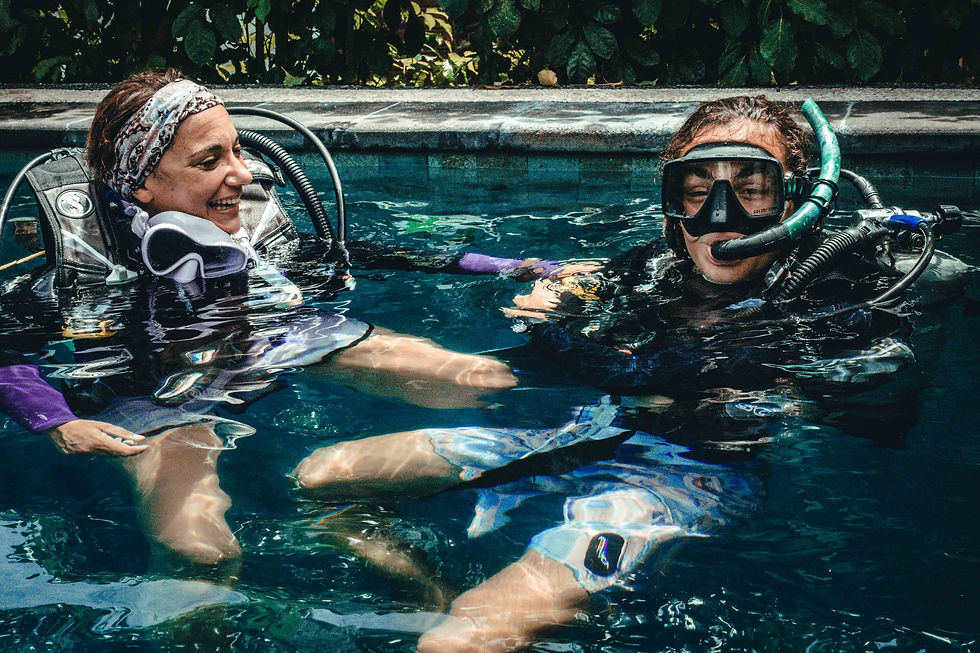Dealing with difficult divers
- Purple Dive

- Jan 9
- 3 min read
If you are a fresh Divemaster or Instructor graduate and starting in your first job, you've probably mastered your buoyancy, can recite the PADI standards in your sleep, and can set up a BCD blindfolded. But let's talk about a challenge that doesn't come with a textbook solution - dealing with difficult divers. Don't worry, we've all been there, and here are a few examples and how to deal with them!
The Over-Confident Diver
We all know this one - the diver who thinks they're Jacques Cousteau's long-lost cousin. They've done 53 dives, so clearly, they know everything, right?
How to handle:
- Acknowledge their experience, but remind them gently that every dive is a learning opportunity.
- Give them a 'special' task, like monitoring the group's air consumption. It keeps them engaged and feeling important while ensuring they stick to the plan.
- Use their 'expertise' positively: "Hey, Jacques Jr., why don't you demonstrate that perfect giant stride entry for the group?"

The Nervous Nellie
On the flip side, we have the diver who's sure every fish is a great white in disguise, or might just be a bit pressured by their loved one to go diving, and not feeling so excited about it.
How to handle:
- Patience is key. Remember, you were once a newbie too.
- Break skills down into smaller, manageable steps.
- Offer lots of positive reinforcement. Did they clear their mask with only 3 tries? That's a win!
- Remind them that diving is fun! Share your favorite part of diving to help them see past their anxiety.
The Gear Junkie
This diver has every gadget known to scuba-kind, but can barely remember how to use their dive computer.
How to handle:
- Channel their enthusiasm into learning. "That's a cool gizmo! How about we focus on mastering it during our next dive?"
- Emphasize the importance of knowing basic skills without relying on gadgets.
- Use their gear interest to discuss proper dive etiquette and safety procedures.

The Underwater Paparazzi
They're more focused on getting the perfect picture of a seahorse than watching their air consumption.
How to handle:
- Set clear expectations before the dive. "We'll have a designated photo stop for 5 minutes at the end of the dive."
- Teach them about responsible marine life interaction. No seahorse selfies or moving around poor little nudis!
- If possible, offer to do a photography-focused dive another time, where they can concentrate on their camera.
The Rule Breaker
This diver thinks depth limits and safety stops are just "suggestions."
How to handle:
- Be firm about non-negotiable safety rules.
- Explain the 'why' behind dive rules. Understanding the reasoning can increase compliance.
- If they persist, don't be afraid to sit them out for a dive (with the blessing of your dive manager of course) or turn them down. Sometimes that's the best way to learn. I personally have no patience for those, and I have no problem benching them.
Stay patient, stay positive, and happy teaching! 🤿🌊📚




Comments